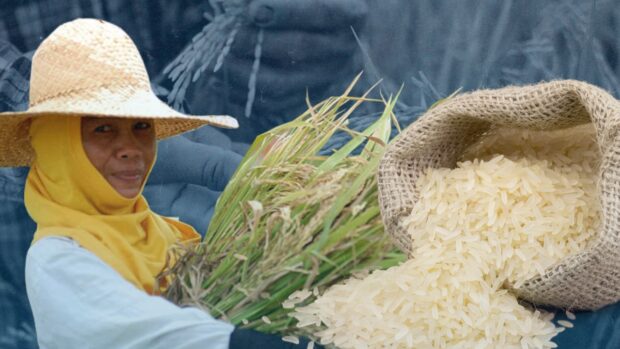Salceda urges gov’t to be ‘obsessed’ with rice supply: It drives inflation up

RICE COMPOSITE IMAGE BY DANIELLA MARIE AGACER FROM INQUIRER FILE AND STOCK PHOTOS
MANILA, Philippines — Economist and Albay 2nd District Rep. Joey Salceda has urged the government to focus on rice as it is a major driver of headline inflation rates — which increased to 3.4 percent in February.
In a statement on Tuesday, Salceda said the Department of Agriculture (DA) “must be laser-focused on rice,” as prices have increased by 23.7 percent yearly.
Earlier, the Philippine Statistics Authority (PSA) reported that the country’s four-month downtrend on inflation was snapped after prices accelerated by 3.4 percent due to higher food prices.
READ: Inflation breaks 4-month downtrend with 3.4% spike in Feb
“One takeaway: It’s all about rice. Vegetable prices are down. Corn prices are down. On the aggregate, utility bills are down versus last year. Even sugar prices are down on a year-on-year basis,” Salceda said.
“In other words, if the government were to be obsessed with one thing, it must be rice. Rice is up 23.7 percent year-on-year, and month-on-month inflation was at an elevated 1.0 percent. Moving forward, the interventions of the Department of Agriculture and the Cabinet as a whole must be laser-focused on rice,” he added.
However, Salceda noted that importation might not be the correct approach since harvest season starts in April, and India — which initially imposed a ban on rice exportation — will have its elections this May.
Instead, the lawmaker urged the DA to ensure post-harvest support for immediate use by April.
“Increasing importation at this time might not necessarily be the correct approach. The first harvest season of the year begins at around April. The Indian elections could take place around May – which means the political pressures that underly the rice export ban in India could ease. So, by June, rice prices could actually stabilize,” he said.
“What the DA can do in March is ensure that all post-harvest support is ready for immediate use by April. Post-harvest losses amount to as much as 12-15 percent, and Secretary Tiu-Laurel has been hyperfocused on dealing with this issue.
We must also ensure that logistics issues at the port, in farm-to-market roads, and other potential supply bottlenecks are eased,” he added.
READ: PH, Cambodia discuss rice supply amid El Niño threat
According to the PSA, the higher headline inflation fell within the projections of the Bangko Sentral ng Pilipinas (BSP). However, Central Bank managers are also concerned about higher transport charges, electricity rates, and costlier oil and domestic food prices.
Furthermore, there are fears that the rice situation would worsen due to the impact on food prices of the El Niño phenomenon. House Speaker Ferdinand Martin Romualdez said these issues may be addressed after a meeting between President Ferdinand Marcos Jr. and Cambodian prime minister Hun Manet, as ensuring a sufficient rice supply for the country was discussed.
The meeting between Marcos and Manet happened on the sidelines of Australian Prime Minister Anthony Albanese’s invitation for a special summit to commemorate 50 years of Association of Southeast Asian Nations (Asean) – Australia relations.